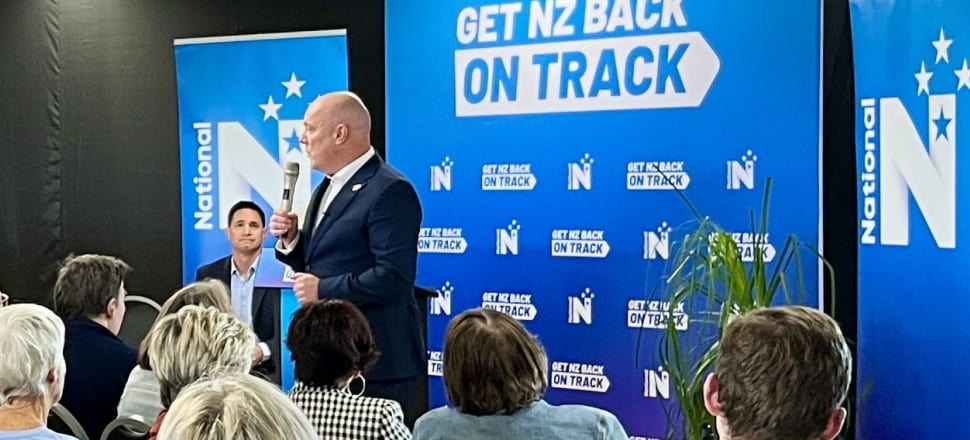
Political ads focusing on the gains you’ll get from voting are more persuasive than ads that focus on the losses you’ll incur if you don’t vote
Opinion: What do you have to gain this election? Maybe the better question is: what do you have to lose?
You may have asked yourself these questions in the lead up to this election. If you did, you’re not alone. Armies of political advertisers, candidates, and campaigners have been asking too. They’ve been asking because they want to know how best to win your vote.
Emphasising the gains on offer if you vote, or the losses you’ll incur if you don’t, is common in political advertising. And though advertising concepts and techniques are well understood when selling products and services, far less is known about how these concepts apply when selling politicians, parties, and policies.
READ MORE:
* It’s what the political campaign slogans leave unsaid
* Labour drags its social media heels
* Time to get over the shock of the ‘new’
So how are political advertisers trying to win your vote?
Advertising gains or losses – which works best?
In recent research, I surveyed hundreds of voters to investigate how political ads attempt to influence your vote. I explored the effectiveness of political ads when they focus on the gains you get from voting compared with when they focus on the losses you could avoid.
These two types of ads can have near identical meanings. For example, a gain-focused ad could read “much lower cost of living if you vote” and a loss-avoiding ad could read “higher cost of living if you don’t vote”. Despite meaning the same thing, these messages have different impacts.
But which is more persuasive?
For the average voter, gain-focused messages work best. The research found political ads focusing on the gains you’ll get from voting are more persuasive than ads that focus on the losses you’ll incur if you don’t vote.
Although gain-framed ads are statistically more effective, loss-framed ads still show promise. Especially if you’re right-wing.
The more right-wing you are, the more likely it is that you’ll be persuaded by loss-avoiding ads. And there’s a good reason why.
Previous research has indicated that those on the right tend to be more risk averse and more loss averse. They tend to conserve things rather than risk losing them. So, according to theory, it makes sense that loss-avoiding ads work better with the right.
In contrast, research indicates that those on the left are often more comfortable with risk and loss. Therefore, they’re less likely to be persuaded by messages that emphasise what they risk losing.
Are political parties putting theory into practice?
Both National and Labour are vying for the centre ground. Despite this, their flagship political slogans seemingly embody two very different approaches.
For the incumbent centre-left Labour Party, its slogan “In it for you” is invariably gain-focused. Labour is advocating there’s a lot in it for you and to realise these gains, vote Labour.
For the centre-right National Party, its slogan “Get our country back on track” appears more loss-avoiding. National is stating New Zealand is not on the track right now and to avoid further losses, vote National.
How do the smaller parties stack up? Like National’s, New Zealand First’s slogan “Let’s take back our country” appears loss-avoiding, which may appeal to more conservative voters. The left-wing Green’s “The time is now” and Te Pāti Māori’s “An Aotearoa hou” appear broadly gain-oriented. For the right-wing Act party, its “Act for real change” slogan appears gain-focused, though core policy messages of ‘end wasteful spending’ and ‘end division’ are more loss-avoiding.
At first glance, party messages seem to align with theory. But there’s more to it.
Ostensibly all political parties and candidates employ a mix of gain-focused and loss-avoiding messages on a regular basis. Beyond party slogans, different message types can be used to advocate different issues and in ways that appeal to different voter segments. Using a mix of message types can allow parties to engage more voters.
This likely explains why there are so many gain-focused and loss-avoiding ads this election. Getting the right mix is no doubt important.
The bigger picture
Of course, there’s more to winning an election than framing ads around gains or avoiding losses. The political product needs to be good. Politicians, parties, and policies need to appeal to voters. Campaign strategy, ad content, ad placement, the number of ads, media spin, and how these variables are aligned with voters’ needs are also important for electoral success.
Yet the evidence remains clear – political ads have the power to persuade. So regardless of what you have to gain or lose this election, political ads will probably influence your vote.







